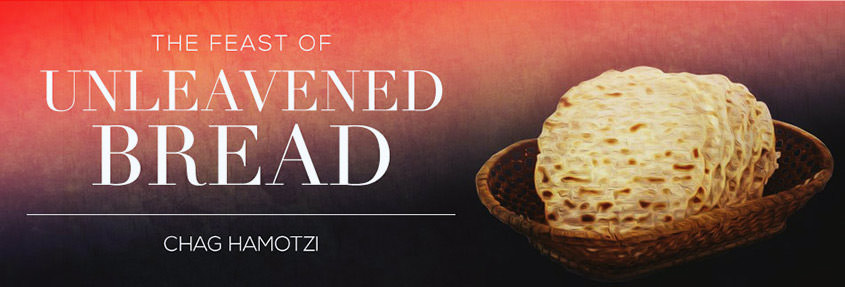Jewish Feasts
The Feast of Unleavened Bread
The Feast of Unleavened Bread begins the day after Passover. It celebrates the day when the Israelites were freed
from the bondage of Egypt and began their journey to the Promised Land. For seven days the entire Jewish community was
prohibited from eating anything leavened, or even having any leaven in their territory.
Leaven is used as a metaphor in Jewish tradition, and throughout Sacred Scripture. First, it represents a person
in urgent flight: one who does not have the time needed for dough to rise. Unleavened bread reminds us that Jews and
Christians alike are refugees, always ready to respond to the Lord's commands, and working feverishly to bring the
Kingdom of God to all. As such, we are all, and always, in flight. For this reason, even today, we are called to
live spartan lives, always ready to respond as the Lord commands.
And second, "Leaven in Hebrew is called Chametz and literally means
sour." Thus, it is used as a metaphor for false doctrine, evil influence,
and sin. To comply with the Lord's command all leaven products must be removed from their homes: from every room,
cabinet, oven, and crevice - every crumb. This includes all food and drink made from wheat, barley, rye, oats or
their derivatives, all types of breads, cereals, pasta, and all baking agents. Once gathered, in ancient Egypt,
the leaven was taken outside and burned. "The punishment for not obeying was to be cut off from the house of Israel.
God views sin very seriously. Just as a little bit of leaven can cause a whole lump of dough to rise , so also a
little sin if not dealt with can work its way through an entire congregation and defile
it."
Similarly, from a spiritual point of view, leaven is a metaphor for the forces in the recesses of our hearts which
corrupt and sour our souls. Unless recognized and resisted, they find lodging within us. To prepare our souls to
be a pure and undefiled sacrifice to our Lord - and hopefully ready to be active, energetic, and effective disciples -
we must sweep clean our lives, through contrition, confession, active repentance and energetic service.
St. John the Baptist said, "Produce good fruits as evidence of your repentance; …
Even now the ax lies at the root of the trees. Therefore, every tree that does not produce good fruit will be cut
down and thrown into the fire.”
"The commandment to thoroughly clean our homes and remove all leaven is a powerful picture of God’s commandment
for us to be a holy and sanctified people, set apart from sin … even a small trace of spiritual leaven in
our hearts can rise up very quickly as an evil impulse within us and corrupt and sour our relationship with the
Father, and others."
